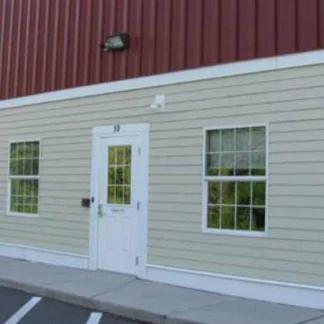Giannas House
Giannas House is an inpatient rehab located in Brockton , MA. Giannas House spec...
High Point – Meadowbrook Addiction Treatment Center is an alcohol and drug treatment center located in Brockton, Massachusetts. Once known as the Brockton Campus, this program is now referred to as Meadowbrook. It serves as a male Section 35 treatment facility, which is an intervention program for those who have been civilly committed.
High Point – Brockton Addiction Treatment Center offers detoxification, stabilization, and inpatient treatment for men. Within these programs, medication assisted treatment may be offered if appropriate.
The detoxification unit at High Point- Meadowbrook provides a safe withdrawal process from alcohol and other substances for both Section 35 and voluntary men. Their medication assisted treatment program supports this process as a treatment option for those who qualify. During the detox, 24 hour nursing care, licensed counselors, and case managers are present. Treatment includes individual and group counseling, family support and education, and aftercare planning. Patients on methadone maintenance may detox from other substances while continuing methadone therapy. Patients also attend daily in house commitment 12 Step groups.
The acute stabilization service offered at High Point Meadowbrook is a 24 hour rehabilitation program that incorporates individual and group counseling, 12 Step education, and other psychoeducation groups. Lectures, opioid overdose prevention workshops, relapse prevention, and coping skills are also taught within this program. Length of stay is based on clients’ clinical needs, and family is encouraged to participate if appropriate.
Medication assisted treatment provides medications along with comprehensive medical, psychiatric, and behavioral counseling. FDA approved medications are used to support withdrawal from opioid drugs and to help maintain long term abstinence. By combining medication with mental health treatment, a greater chance of success is achieved for long term abstinence.
Group therapy involves treatment through the process of connecting in a group setting to discuss and work through mental, emotional, and physical issues. There are a number of different group therapy modalities, including support groups, experiential therapy, psychoeducation, and more.
Contact us for more information: (508) 584-9210

Connect with High Point - Brockton Addiction Treatment Center - BATC by calling their admissions team directly.
(508) 584-9210 Website Get DirectionsThe Joint Commission, formerly known as JCAHO, is a nonprofit organization that accredits rehab organizations and programs. Founded in 1951, the Joint Commision's mission is to improve the quality of patient care and demonstrating the quality of patient care.
Joint Commission Accreditation: Yes
The Substance Abuse and Mental Health Services Administration (SAMHSA) is a branch of the U.S. Department of Health and Human Services. Established in 1992 by congress, SAMHSA's mission is to reduce the impact of substance abuse and mental illness on American's communities.
SAMHSA Listed: Yes
Research clearly demonstrates that recovery is far more successful and sustainable when loved ones like family members participate in rehab and substance abuse treatment. Genetic factors may be at play when it comes to drug and alcohol addiction, as well as mental health issues. Family dynamics often play a critical role in addiction triggers, and if properly educated, family members can be a strong source of support when it comes to rehabilitation.
Group therapy is any therapeutic work that happens in a group (not one-on-one). There are a number of different group therapy modalities, including support groups, experiential therapy, psycho-education, and more. Group therapy involves treatment as well as processing interaction between group members.
In individual therapy, a patient meets one-on-one with a trained psychologist or counselor. Therapy is a pivotal part of effective substance abuse treatment, as it often covers root causes of addiction, including challenges faced by the patient in their social, family, and work/school life.
Group therapy is any therapeutic work that happens in a group (not one-on-one). There are a number of different group therapy modalities, including support groups, experiential therapy, psycho-education, and more. Group therapy involves treatment as well as processing interaction between group members.
In individual therapy, a patient meets one-on-one with a trained psychologist or counselor. Therapy is a pivotal part of effective substance abuse treatment, as it often covers root causes of addiction, including challenges faced by the patient in their social, family, and work/school life.
In individual therapy, a patient meets one-on-one with a trained psychologist or counselor. Therapy is a pivotal part of effective substance abuse treatment, as it often covers root causes of addiction, including challenges faced by the patient in their social, family, and work/school life.
Giannas House is an inpatient rehab located in Brockton , MA. Giannas House spec...
Teen Challenge New England & New Jersey operates as a faith-based rehabilita...
Brook Recovery Centers is a CARF-accredited substance abuse rehab in Abington, M...
Secon of New England is a private rehab located in Brockton, Massachusetts. Seco...